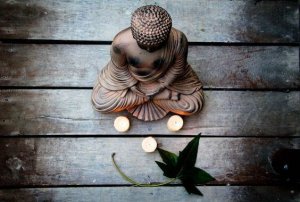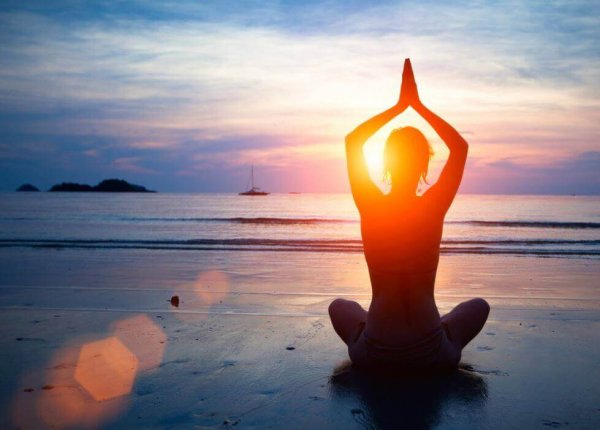Eight Worldly Dharmas about Detachment


Written and verified by the psychologist Valeria Sabater
The eight worldly dharmas refer to everything that blocks your conscious ability to be happy. Buddhism and psychology state that clinging to material possessions, pride, or the desire to gain can lead to suffering.
You’ve probably heard that Buddhism is like a house filled with treasures. However, your Occidental interpretation makes it difficult to really appreciate the spiritual and philosophical nature of those treasures.
The basic doctrines and dharmas of Buddhism aren’t easy to tackle. Part of this is due to your own mentality and the society you come from and live in, as they end up shaping you.
As a result, many Buddhism experts recommend this simple advice. Don’t worry if you don’t know about chakras, meditation, or the alleged vital energy contained in Kundalini yoga, as they’re irrelevant if you don’t learn about the eight worldly dharmas first.
The first step to your spiritual awakening is to work on your concerns. That’s the threshold of Buddhism, to get rid of all those obsessive thoughts and social desires. To leave behind your fear of loss, your fixation on gaining, and your senseless attachments.

The Eight Worldly Dharmas
The eight dharmas are based on two concepts: detachment and impermanence. These concepts are your real nemesis.
Your own mentality and learned behaviors probably focus your existence on certain dimensions, needs, people, and material possessions you think are essential. Thus, you become attached to these things, not realizing that nothing in this world is forever.
In your everyday life, there are certainties, attachments, and expectations you think you control because you like to feel you’re in control. However, life is dynamic.
That’s why change has the power to undermine you. Unfulfilled expectations can stress you out or make you suffer. While your mind is under the influence of these dharmas, you’ll never be free. Let’s talk about how these dimensions affect you.
Material Possessions/Not Having Them
The eight worldly dharmas are comprised of four pairs of attachment and dislike. The first one is related to your need for possession and fear of losing what you own. There are many examples, such as your dependence on technology, certain clothing brands, shoes, cars, etc.
All these things are considered essential in your everyday life. You need them to work or to project an image. Above all, the problem is the misery you feel when you don’t have these things. This a worldly dharma that’s important to work on.
Recognition, Validation, and Fame/Censorship or Disapproval
All of us need validation, recognition, and approval as we’re social beings. The problem arises when that need becomes a priority and you’re incapable of living without that validation.
Not knowing how or not being able to live without validation or living with the anxiety that comes from censorship or disapproval is another source of suffering.

A Good Reputation/A Bad Image
Do you feel conditioned by your reputation? If you do, then you’re not free. You also aren’t able to act, feel, and live according to your desires. If you’re always aware of what others think or say about you, you’ll hinder your own growth.
“If you’re willing to look at another person’s behavior toward you as a reflection of the state of their relationship with themselves rather than a statement about your value as a person, then you’ll, over a period of time, cease to react at all.”
-Yogi Bhajan-
Pleasure/Unpleasant Experiences
This might sound contradictory. What’s so bad about using our senses to experience pleasure? Are we supposed to not dislike unpleasant experiences?
To understand this, you need to see it through Buddhism. When there’s humility, frugality, and fairness, there’s no place for excess. Buddhist philosophy dismisses desires and wants. It’s all about wellness and moderation. It’s about not needing anything. This way, your consciousness frees itself of material wants and there’s wisdom, compassion, and spiritual progress.

These eight dharmas might seem difficult to change because society makes it difficult to give up on the fantasy of permanence and the fear of knowing you’re not really in control. However, use these approaches and let them inspire you to live a more autonomous life, free of selfishness, hollow pride, empty needs, and thoughts that keep you from growing as a person.
This text is provided for informational purposes only and does not replace consultation with a professional. If in doubt, consult your specialist.








